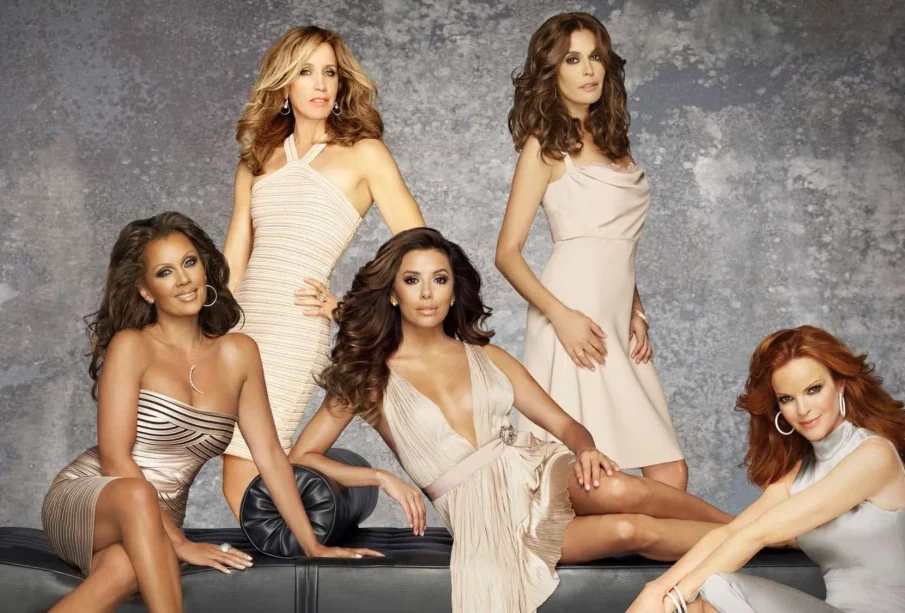Desperate Housewives: A Look Back at its Cultural Impact

Introduction to Desperate Housewives
“Desperate Housewives,” a groundbreaking television series that aired from 2004 to 2012, revolutionized the landscape of family dramas and comedy. Created by Marc Cherry, it captivated audiences with its blend of melodrama and dark humor, showcasing the lives of suburban women grappling with domestic challenges, secrets, and societal expectations. This show not only earned numerous awards but also sparked discussions about gender roles, feminism, and the pursuit of happiness in modern society.
The Storyline and Characters
Set in the fictional Wisteria Lane, the narrative revolves around a group of women, led by the charismatic and enigmatic Susan Mayer, played by Teri Hatcher. Other central characters include the ambitious Bree Van de Kamp (Marcia Cross), the passionate Lynette Scavo (Felicity Huffman), the sultry Gabrielle Solis (Eva Longoria), and the mysterious Edie Britt (Nicolette Sheridan). Each character faces unique challenges—from infidelity to childrearing—while weaving an intricate plot filled with surprising twists.
Impact on Pop Culture
Desperate Housewives not only became a cultural touchstone but also influenced later television series by introducing complex female characters who often defied stereotypes. The show explored a variety of themes such as loyalty, ambition, and morality in a way that resonated with a diverse audience. Its ability to navigate serious topics through the lens of humor helped it maintain a dedicated fan base, leading to high ratings and widespread acclaim. The series sparked fashion trends, with viewers emulating the characters’ styles, and it became a staple in discussions about women in media.
Current Relevance
As of 2023, Desperate Housewives continues to be relevant in discussions surrounding the portrayal of women’s issues on screen. With the resurgence of interest in classic television series through streaming platforms, many new viewers are discovering Wisteria Lane and its residents. The show’s impact can be observed in contemporary series that feature strong female leads, with narratives that challenge societal norms, thereby indicating its enduring legacy in the entertainment industry.
Conclusion: The Enduring Legacy of Desperate Housewives
Ultimately, Desperate Housewives remains a significant part of television history, a series that captured and critiqued suburban life while challenging the conventional narratives surrounding women. Its success paved the way for more empowering representations of female characters in media, encouraging new generations of writers and producers to explore similar themes. As viewers continue to stream and discuss the show, its cultural significance is likely to be felt for years to come.









